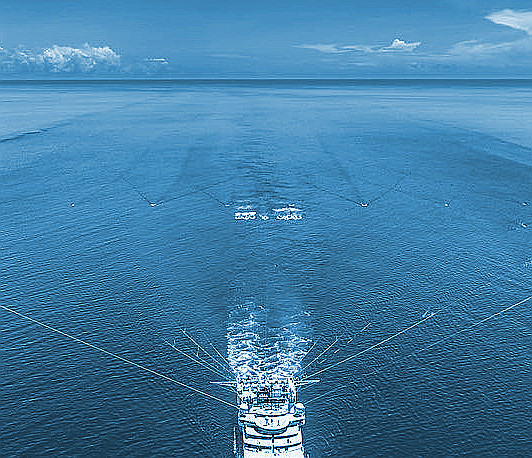Seismic surveys slammed
 Fishers and miners at butting heads over seismic surveys off Australian waters.
Fishers and miners at butting heads over seismic surveys off Australian waters.
CGG, a French-owned geo-surveying company, recently began community consultation to conduct a seismic survey of the seabed off the coast of Victoria.
Seismic surveying techniques involve shooting loud airwaves at the ocean floor to uncover subterranean oil and gas reserves.
The south-west coast of Victoria is also the base for five trawl fishers in Portland that catch fresh fish from as far away as western Tasmania.
The Gippsland trawl fishers off Victoria's eastern coast faced a similar battle with CGG in 2020 when a study found that catch rates were reduced by up to 99.5 per cent in the surveyed area.
The National Offshore Petroleum Safety and Environmental Management Authority (NOPSEMA) ordered CGG to improve and standardise its compensation scheme for fishers in late 2020.
Director of Klarite, a consulting company hired by CGG to liaise with the south-west Victorian community, Matt Smith, has assured that CGG would ensure no commercial fisher was worse off as a result of their planned survey.
But local lobster fisher Gary Ryan says the companies should do more to acknowledge that their methods are harmful to particular species and the broader environment.
“I just wish they would find a more environmentally friendly form of surveying the seabed to find this oil and gas,” he said.
At the national level, talks between the seismic and fishing industries have broken down, and there is no mandatory or standardised approach to compensation.
The government recently released a voluntary “guidance framework” after several industry workshops aimed at finding a standard approach to compensating fishers to minimise conflicts during consultation.
However, several fishing industry representatives left the bargaining table after the seismic surveying industry refused to acknowledge that their technique damages the environment.
The framework recommends that surveyors hold at least one “regional meeting” a year but does not address a mandatory or standardised compensation approach.
According to a NOPSEMA spokesperson, the guidance encourages collaboration between the industries.
Samantha McCulloch, the chief executive of the Australian Petroleum Production and Exploration Association, has welcomed the new guidelines, saying; “Improved coordination and information sharing is important to our ongoing co-existence with the fishing industry”.








 Print
Print